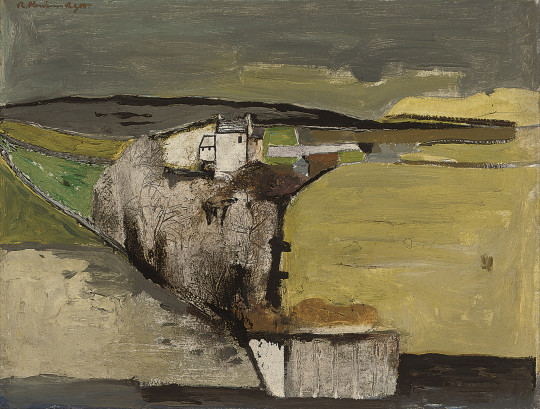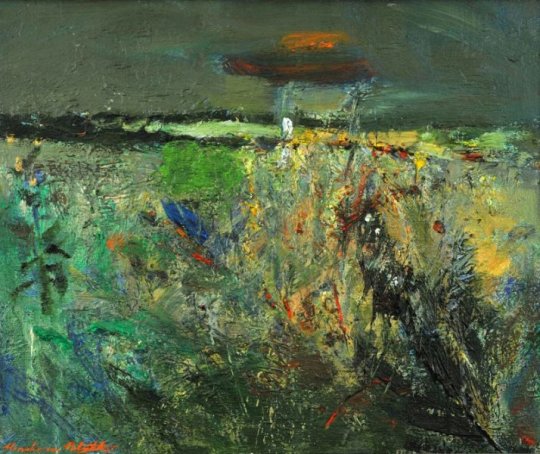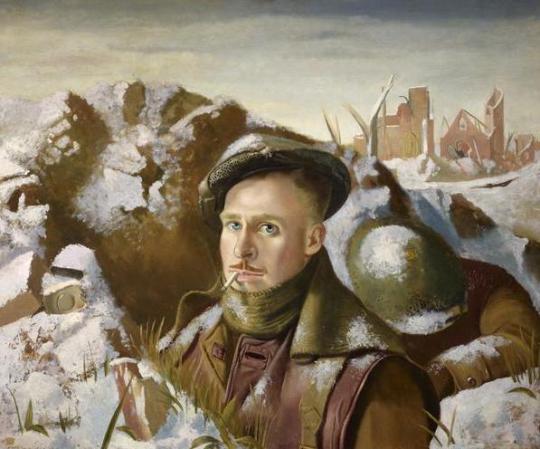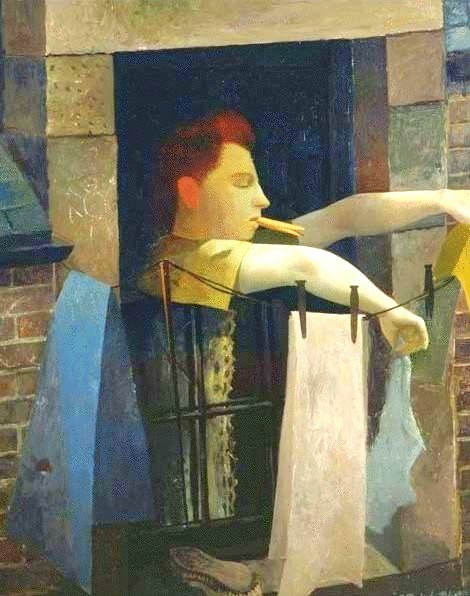There is always the thrill of what comes next in my hunt for things to buy and own. I found this artist’s work, printed in black and white in the studio magazine and knew I would love it. The magazine was from 1958 and I think the art that I have been able to find so far by Henderson Blyth makes him an unknown treasure, to me anyhow.
Among the younger established painters of the Contemporary Scottish School none has attained a more prominent place than Henderson Blyth.
Blyth is a true Scot. He has inherited the characteristic temperament of his people and his art is the embodiment of all that is nordic, elemental and discrete. In addition he has inherited the Scots intellectual curiosity and insatiable appetite for intimate knowledge of the phenomenal world. Together these ingredients account for the peculiarly personal and indigenous quality of his work.
Trained at Glasgow, he was early initiated into the poetry of tone and the ‘logic’ of form. A year’s study under the late James Cowie, R.S.A. at the country Art School at Hospitalfield enabled him to continue and develop his personal interests and leanings. Cowie was an impeccable draughtsman, a fastidious classicist and a man of profound artistic integrity. To a young romantic the environment at Hospitalfield could hardly have been better adapted to his intellectual and spiritual requirements. A prodigious worker. Blyth’s reputation rests primarily upon his landscapes which are burdened and sombre. †

Robert Henderson Blyth – Rain on the Hill

Robert Henderson Blyth – Thunder Light, 1967

Robert Henderson Blyth – Self-portrait as soldier in trenches – Sub-titled ‘Existence Precarious’, 1919

Robert Henderson Blyth – The Artist’s Wife Hanging out the Laundry, 1947
† The Studio Magazine – March 1958